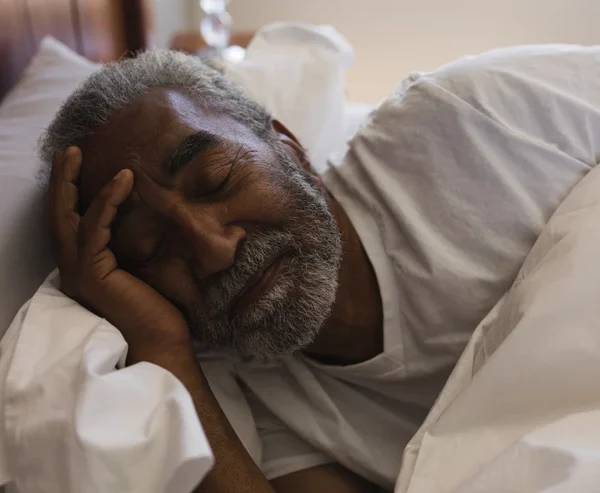Chronic Pain and Depression: Symptoms, Triggers, and Treatment
Chronic pain means just that. It is a pain that lasts longer than three months…a long time and hurts more than the pain was in the original issue. Coping with long-term or chronic pain is tough. It’s even tougher when you live with chronic pain and depression. It worsens as chronic pain goes on, and you may begin to experience pain in new places that felt normal before. Your sensitivity to pain increases as the condition becomes chronic.
Depression is like holding a magnifying glass over your pain. The good news is that psychotherapy and medications can help with depression and make living with chronic pain more tolerable.
Chronic Pain Symptoms
- Very low energy
- Very high-stress hormone levels
- Depression
- Physical and mental fatigue
- Muscle pain
Chronic pain can keep you up at night, making you tired and less productive during the day. Continuous pain can make it hard for you to manage relationships, household chores, care for grandchildren, and overall seems to make life a struggle. These feelings lead to depression and irritability, and some even end up with suicidal thoughts.
According to the American Pain Foundation, approximately 32 million individuals reported having chronic pain in the U.S. lasting more than a year. Furthermore, it is estimated that up to ½ of chronic pain sufferers are also depressed. More than 60% of people diagnosed with depression also complain of chronic pain.
People suffering from chronic pain frequently do not report being depressed, so it goes untreated. The pain seems to take center stage over the feelings of depression during doctors visits. The result is depression and all of its accompanying problems, such as insomnia, fatigue, loss of appetite, making the pain much worse.

When you feel pain, an emotional response is provoked; and that is for everyone. Agitation, anxiety, and irritability are normal responses when you’re hurting. Usually, the stressful feelings subside when the pain does.
With chronic pain comes chronic stress. Chronic stress causes emotional problems, such as depression. Some of the issues individuals have with both depression and chronic pain include:
- Moodiness
- Frustration
- Anger
- Panic
- Chronic anxiety
- Confusion
- Decreased self-esteem
- Relationship or family stress
- Brain fog
- Fatigue
- Fear of injury
- Financial concerns
- Irritability
- Legal issues
- Physical deconditioning
- Loss of interest in sexual activity
- Insomnia
- Isolation
- Weight gain or loss
Report Symptoms of Stress-Related Back Pain

Talk to your doctor if you are experiencing symptoms of stress-related back pain. The symptoms are very similar to those of fibromyalgia:
- Neck and back pain
- Tender muscle points
- Aching muscles
- Fatigue
- Insomnia
- Increased back pain before, during, or after a stressful experience
Chronic pain can worsen by non-activity or physical deconditioning. Learning pain-management techniques such as guided imagery, breathing exercises, and other cognitive techniques can help prevent it from worsening.
Chronic Pain, Depression, and the Brain

Chronic pain and depression share some of the same brain chemicals (neurotransmitters) and some of the same neural pathways in the spinal cord and the brain. If you’re depressed, chronic pain worsens, and vice versa. It forces terrible situations to arise, such as not being able to take a walk, sleep well, socialize, or even enjoy your family. These issues, in turn, make the depression worse. Then the depression magnifies the pain even more. It is a vicious cycle. It can seem impossible to do anything to manage the stress because of the pain and can ultimately lead to diagnosable clinical depression.
For Chronic Pain with Depression: Take a Whole-Life Approach
Depression coupled with chronic pain can affect your whole life. Therefore, the best approach for treating this depressing duo is to address all of the areas affected by them in your life. Because they are so interconnected, it only makes sense that the treatment plan for these conditions overlaps.
Believe it or not, antidepressants work on both! Because depression and chronic pain involve the same neurotransmitters and nerve pathways, specific antidepressants can treat both. It works because antidepressants change your perception of pain and can reduce it.
Stress-management techniques like walking, journaling, stretching, gardening, meditation, learning coping skills, and remembering to stop and smell the roses, may also help.
Early diagnosis of depression associated with pain is essential. This is especially true for chronic pain sufferers with a history of clinical depression. Some doctors specialize in pain management, while others specialize in mental health conditions. Speaking up to your pain management team about any symptoms of depression can alert your doctors about considering treatment for both conditions.
Identify Stress Triggers that Aggravate Chronic Pain

Identifying emotional triggers or stress triggers that worsen your pain is the starting point for pain management. If you can eliminate or avoid identified stress triggers, such as traffic issues or relationship problems, you can reduce the chances of increased pain. Developing your pain-management strategy by leaving earlier when you know traffic is an issue, you can institute effective time management as part of your pain-management program. Let’s say you and a family member have gotten into debating certain issues right before bedtime. Writing down your self-prescribed pain-management solution to prohibit these types of conversations can help you suffer less. Keep a trigger diary, where you can list your triggers and then work on avoiding them.


